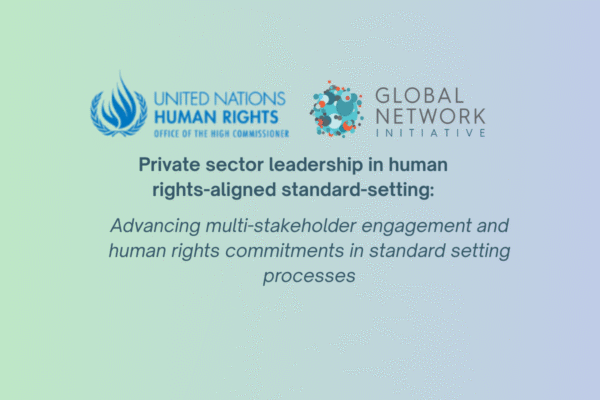
On 8 July 2025, alongside the WSIS+20 High-Level Event and AI for Good Action Summit, the Office of the United Nations High Commissioner for Human Rights (OHCHR) and the Global Network Initiative (GNI) co-convened in Geneva and online a diverse group of stakeholders from civil society, the private sector, standard-setting organizations, governments, and academia to explore how human rights can be meaningfully integrated into the development, implementation, and governance of technical standards. Under the Chatham House Rule, the workshop particularly aimed to discuss how the private sector can advance human rights in the development and implementation of technical standards, fostering a human rights-based approach and promoting the uptake of the UN Guiding Principles on Business and Human Rights (UNGPs). Building on OHCHR’s report to the Human Rights Council (A/HRC/53/42) and the wider B-Tech Project, the session highlighted concrete strategies for institutional change and stakeholder cooperation.
Throughout the discussion, speakers urged a shift in how standards are framed—not as apolitical technical artifacts, but as governance instruments that can at times reinforce or mitigate harm. The integration of human rights into standard-setting are also connected to a broader discourse around design justice and democratic legitimacy. It is important to consider both top-down and bottom-up approaches, where law is sometimes top-down.
In closing, participants encouraged OHCHR and its partners to continue convening diverse actors across regions and technical disciplines, and to facilitate the co-development of practical guidance for embedding human rights into both the content and governance of standards. Concrete next steps included exploring the feasibility of integrating human rights considerations into review processes across SDOs, establishing collaborative models to support SME engagement, and increasing multilateral coordination on rights-aligned standardization. An overarching takeaway is related to the conversations not had during the consultation: the consultative framing question that was left open, namely how to foster cooperation between human rights and tech standards teams in companies?